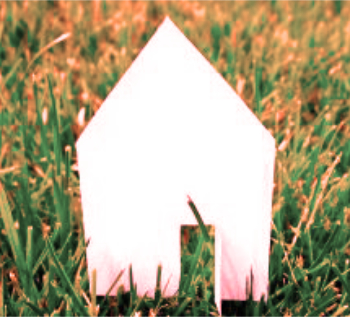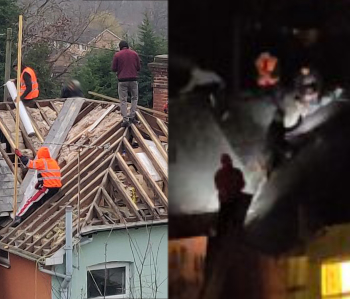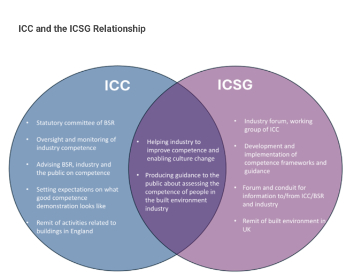Take a leaf out of the new rule book – collaboration is king
Last week the International WELL Building Institute (IWBI), along with RESET, BRE and the Green Building Council of Australia (GBCA) announced a joint agreement to work together to develop a coordinated set of global standards and guidelines for indoor and outdoor environmental monitoring systems and sensors. Whilst at face value this might not sound like a big step, it is in fact a huge step and one that shows that genuine collaboration and sharing of resources, knowledge and connections can facilitate change.
There are numerous indoor and outdoor environmental factors that can impact human well- being. Whilst we talk about our ability to measure these elements, in reality this isn’t the case. Yes we measure, but in the absence of a set of global, commonly agreed values and data ranges all we are doing is taking a reading and using our initiative so say whether it is good or bad – all too often this is a stab in the dark.
The new agreement will see these four organisations collaborate to develop standards for sensor manufacturers and system installers/integrators as well as building owners and operators, facilities managers and others – for whom indoor environmental quality is a critical performance measurement.
The important thing here is the fact that four highly respected organisations that between them span the globe have come together to drive this initiative. If one organisation had tried to do this on their own it is likely it would have failed – put the four together and we have the resources and skills to ensure it succeeds.
The understanding of the importance of the indoor environmental performance of buildings is one of the hottest topics. For years we have put the performance of the building fabric first but we are now coming round to the realisation that we create buildings for people and that the internal environment and its effect on the building occupiers should be the primary driver.
With this desire to put the occupier first has come the realisation that there are so many new and untested monitoring systems on the market and with the lack of clear guidance for users, we are causing nothing but confusion and potentially a smokescreen of worthless data. This new collaboration will hopefully clear this smoke and provide a set of universally agreed standards against which monitoring data can be assessed.
Part of the challenge will be getting buy-in and support from the senor manufacturers. To date they have few specific data quality standards to adhere to so have a largely open playing field. However by working with the organisations to agree standards, they will enable the verification of their products and in turn create competitive advantage.
The beauty of this collaborative approach is that each party can add something to the mix. IWBI is a founding member of the Well Living Lab, a collaboration with Delos and the Mayo Clinic. The lab is a sensor-rich reconfigurable space where researchers can monitor and test technologies and protocols with human subjects in simulated, real-world environments. IWBI will leverage the information learned from the Well Living Lab to help inform the development of this new set of standards. RESET will be contributing experience from over a decade of testing, developing and deploying standards for indoor air quality sensors in China, encompassing standards for installation and maintenance as well as data reporting. BRE will be providing its expertise in providing the industry with performance data for indoor environmental sensors and its global knowledge in creating industry standards. GBCA is committed to forging partnerships with like-minded organisations to provide tools and mechanisms that will make it easier for the property and construction industry to create healthy, sustainable buildings.
The coming together of these four organisations is a massive step in the right direction and should be acknowledged by the industry as a shining example of how collaboratively we can make a difference. The accurate benchmarking of indoor and outdoor environmental factors is essential if we are to create a more sustainable built environment. Yes there is a lot of work to do and I’m sure there will be hurdles to overcome but I do wonder how much more we could achieve if we all took a leaf out of the new rule book being pioneered by the likes of IWBI, RESET, BRE and GBC. They are proving that if you want something done and want to make a positive difference, true collaboration is king.
Written by Darren Evans, Managing Director, Darren Evans Assessments
Featured articles and news
Twas the site before Christmas...
A rhyme for the industry and a thankyou to our supporters.
Plumbing and heating systems in schools
New apprentice pay rates coming into effect in the new year
Addressing the impact of recent national minimum wage changes.
EBSSA support for the new industry competence structure
The Engineering and Building Services Skills Authority, in working group 2.
Notes from BSRIA Sustainable Futures briefing
From carbon down to the all important customer: Redefining Retrofit for Net Zero Living.
Principal Designer: A New Opportunity for Architects
ACA launches a Principal Designer Register for architects.
A new government plan for housing and nature recovery
Exploring a new housing and infrastructure nature recovery framework.
Leveraging technology to enhance prospects for students
A case study on the significance of the Autodesk Revit certification.
Fundamental Review of Building Regulations Guidance
Announced during commons debate on the Grenfell Inquiry Phase 2 report.
CIAT responds to the updated National Planning Policy Framework
With key changes in the revised NPPF outlined.
Councils and communities highlighted for delivery of common-sense housing in planning overhaul
As government follows up with mandatory housing targets.
CIOB photographic competition final images revealed
Art of Building produces stunning images for another year.
HSE prosecutes company for putting workers at risk
Roofing company fined and its director sentenced.
Strategic restructure to transform industry competence
EBSSA becomes part of a new industry competence structure.
Major overhaul of planning committees proposed by government
Planning decisions set to be fast-tracked to tackle the housing crisis.
Industry Competence Steering Group restructure
ICSG transitions to the Industry Competence Committee (ICC) under the Building Safety Regulator (BSR).
Principal Contractor Competency Certification Scheme
CIOB PCCCS competence framework for Principal Contractors.
The CIAT Principal Designer register
Issues explained via a series of FAQs.
























